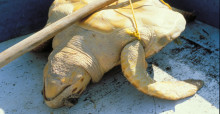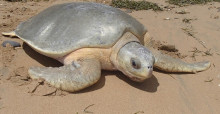The CMS Energy Task Force (ETF) convened its 6th Meeting on 9 and 10 February. Over 60 participants, including representatives of CMS Parties, Multilateral Environmental Agreements, NGOs, International Financial Institutions, and entities working in the energy field met to discuss progress and priorities in implementing the ETF 2021-2024 workplan. CMS Executive Secretary Amy Fraenkel said: “Global energy demand is set to increase 30% by 2040. Transitioning to a decarbonized economy should be a top priority, but this transition needs to take place without jeopardizing the future of migratory species, many of which are already suffering from inadequate planning and monitoring of current energy developments.












